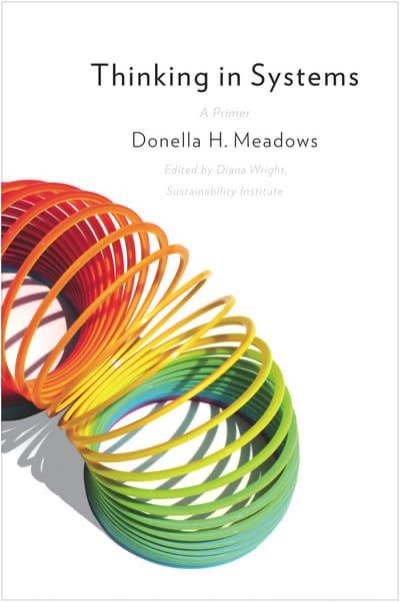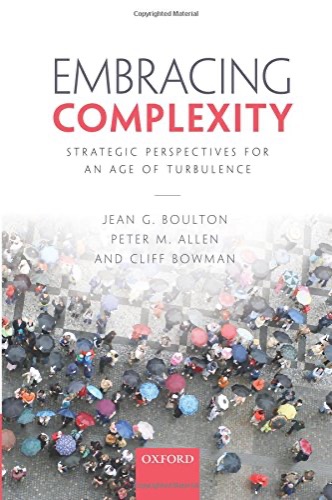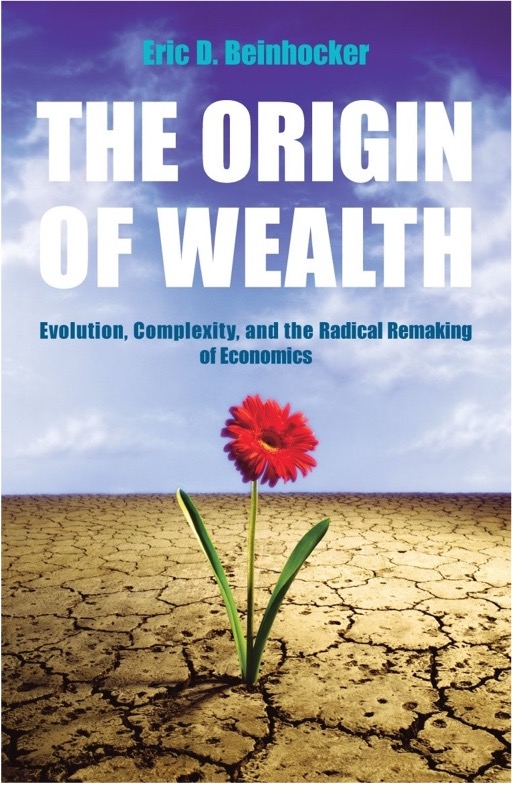Considering the world of economics from a systemic viewpoint is relevant and important to us all, as ORSC practitioners, coaches, business owners, team leaders and as human beings. The complexities of economics underpin society and being able to unpick our current economic system and its flaws, to move towards new perspectives, could shape society as we will know it in the future, and for the generations to come.
Thinking in Systems: A Primer
By Donella H. Meadows, Diana Wright

This book provides a systemic framework of thinking that challenges the accepted norms and identifies the constraints of logical thinking alone. Systems thinking transcends disciplines and cultures and when it is done correctly, it over arches history. When we see the relationship between structure and behaviour we can begin to understand how systems work, what makes them produce poor results and how to shift them into better behaviour patterns.
On one hand, we have been taught to analyse, to use a rational ability to trace a direct path from cause to effect to look at things in small and understandable pieces, to solve problems by acting on or controlling the world around us. On the other hand, long before we were educated in rational analysis, we dealt with complex systems. We ARE complex systems! Our own bodies are examples of integrated, interconnected self-maintaining complexity. Every person we encounter, every organisation, every animal, garden, tree and forest is a complex system. We have an intuitive understanding, without analysis, often without words, of how these systems work. It is this neglected power of intuition that is emphasised as a supplement to logic to appreciate and comprehend systems.
We need to intuitively understand the relationships and patterns to understand how systems work and suspend pure reliance on logic. By adopting this framework, effective interventions can be enabled to effect change in the fields of management, strategy, economics, and international development.
Embracing Complexity: Strategic Perspectives for an Age of Turbulence
By Cliff Bowman, Jean G. Boulton, and Peter M. Allen

Once again, this book highlights two contrasting views. Firstly, that the world can be viewed as mechanical, where the future is predetermined on an unfolding path. Secondly, the focus on complexity from a systemic perspective with the world interconnected with rich forms and patterns shaped by history and context. Attention is focused on how these perspectives can be modelled and the implications on planning and implementation.
Complexity thinking is not new. It’s been part of our understanding and experience since the beginning of civilization. However, in the 5th century, old ideas emerged of perfect forms that favoured linear progression. What is now re-emerging is appreciation that the future is a dance between patterns and events.
The theories of complexity have been developed primarily through mathematical modelling, utilising diverse models from linear or non-linear deterministic equations through to probabilistic dynamics and the master equation! Three types of change are defined: unfolding, self-organizing and evolutionary and the requirements for modelling are explored along with required assumptions. The finding is that modelling is useful to investigate problems for which they were designed, however it is misleading to abstract outcomes & apply them more widely. On a macro level, the balance between a structured economy verses laissez-faire sits somewhere in the middle, however what is clear even if a balance is determined, we cannot control the ultimate effects or outcomes of our actions.
Viewing economics through the lens of complexity highlights the dangers of using equilibrium models to address the future. It supports the view that attention alone on models and not on empirical research is insufficient. Policymakers need to look at issues systemically not thematically and to undertake a rich multi-faceted perspective including social, economic and environmental factors.
The Origin of Wealth
by Eric D. Beinhocker

Traditional economics focuses on the “invisible hand” of market allocation. Economics from the start is taught including assumptions that justify the models.
This book redefines economic theory by presenting the economy from a different perspective as a ‘complex adaptive system’, rather than a static picture of economic systems striving towards equilibrium. Economic theory is reframed by adopting an evolutionary perspective. Economics is viewed through the evolutionary process of differentiation, selection and amplification, acting on the allocation of resources that drives growth.
The formula of evolution that has driven the growing order and complexity of the biosphere has also driven the growing order & complexity of the “econosphere”. Evolution is seen as an algorithm, it is an all-purpose formula for innovation, a formula that through its special brand of trial and error, create new designs and solve difficult problems. Because evolution is a form of information processing, it can do its order-creating work in realms, ranging from computer software to the mind to human culture and to the economy.
If the economy is a complex adaptive system then this has important implications as it means that traditional economics can’t deliver effective answers, furthermore our analysis of companies and markets has been limited. This gives rise to a new methodology with far reaching consequences that embody an adaptive process to navigate uncertainty and deliver on goals.
Here are a couple of independent UK book shops you can order these books from and have them delivered:
Topping Company Booksellers (Edinburgh)
South Kensington Books (London)
We want your recommendations!
We are interested in covering the following topics through the systemic lens:
- Spirituality
- Law
- Culture & the arts
- The environment
If you have any book recommendations, please send them over to Chloe at chloe@crruk.com along with a line about yourself so we can credit your recommendation.
If you have recommendations for independent book shops (who deliver) for our future book recommendation newsletters, please let us know too!






